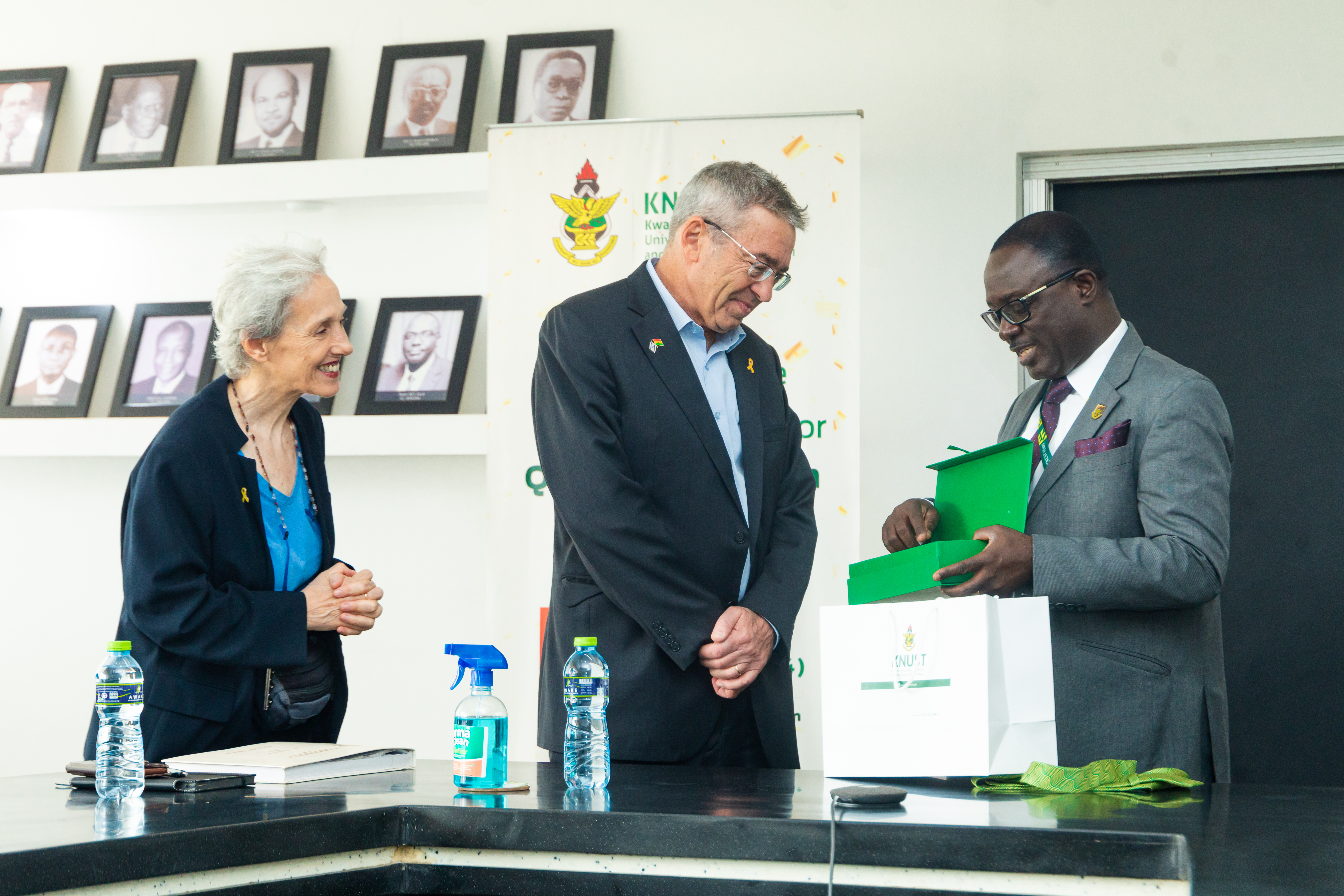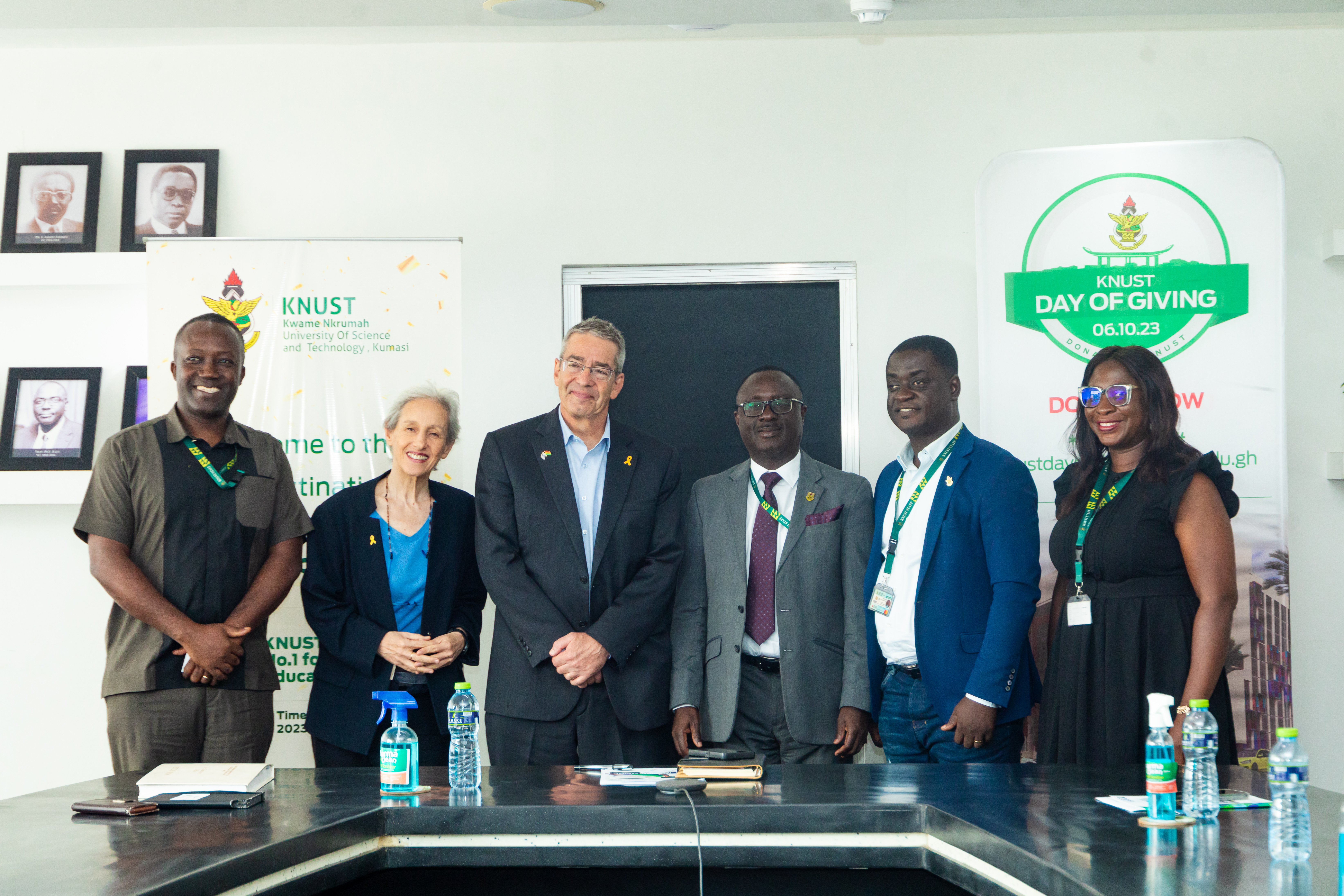Israeli Ambassador explores collaboration in STEM, Entrepreneurship, and E-Learning at KNUST
The Israeli Ambassador to Ghana, His Excellency Roey Gilad, has engaged with stakeholders at the Kwame Nkrumah University of Science and Technology to explore potential collaborations in science, technology, entrepreneurship, and e-learning. Discussions during the visit were also on student and faculty mobility, research partnerships, and innovative approaches to education. Accompanied by his wife, the ambassador met with the Pro Vice-Chancellor of KNUST,
Professor David Asamoah, and other university officials to deliberate on ways to strengthen ties between KNUST and Israel.
Driving innovation through STEM and technology
Ambassador Gilad commended KNUST for its contributions to higher education in Ghana and expressed interest in leveraging Israel’s expertise in STEM fields. “Science and technology are central to Israel’s development, and I believe there are areas where we can share experiences and collaborate with KNUST,” he said. Highlighting the university’s large student population, he noted the significance of partnerships that promote innovation and expand access to educational resources.

Enhancing E-Learning and hybrid education
Professor Eric Appau Asante, Director of the KNUST E-Learning Centre, presented an overview of the university’s advancements in digital education. He explained how the COVID-19 pandemic transformed KNUST’s teaching and learning approaches, with e-learning becoming a component of its operations. “Through our hybrid and online learning systems, we have created opportunities for students to access quality education while gaining skills.
Partnerships with institutions and embassies, such as yours, are necessary to sustaining these efforts,” Professor Asante said. The meeting also included Mrs. Abigail Dzama Anderson, the Senior Assistant Registrar at the KNUST E-Learning Centre. who oversees administrative operations at the Centre.
Promoting mobility and cultural exchange
Dean of the International Programmes Office, Professor Daniel Yaw Addai Duah, expressed interest in student and faculty exchange programs, describing them as useful for bringing cultural and academic collaboration. He mentioned mobility enhances global learning experiences and promotes innovative research.
“Exchange programs open doors for collaborative research and equip students and faculty with global perspectives that are essential for solving real-world challenges,” he said. Expanding collaboration beyond education Beyond education, the discussions touched on entrepreneurship, agriculture, and architecture, areas where Israel’s experience could align with KNUST’s priorities.

Ambassador Gilad emphasized the potential for partnerships in entrepreneurship, citing its importance in equipping young people with skills to address socio-economic challenges. Professor David Asamoah affirmed KNUST’s commitment to promoting entrepreneurship, describing it as one of the university’s missions. “Our goal is to empower students with innovative solutions that create societal impact. Working with Israel can expand our capacity to meet this goal,” he said.
Strengthening relations
The Pro Vice-Chancellor, Professor David Asamoah, reiterated KNUST’s readiness to collaborate with international partners to address local and global challenges. “As a leading science and technology institution, we are committed to fostering innovation and building partnerships that contribute to national and global development,” he said.
Ambassador Gilad expressed gratitude for the warm reception and shared his optimism about the future of the collaboration.
Published: 14th December, 2024 Source: KNUST E-Learning Centre
